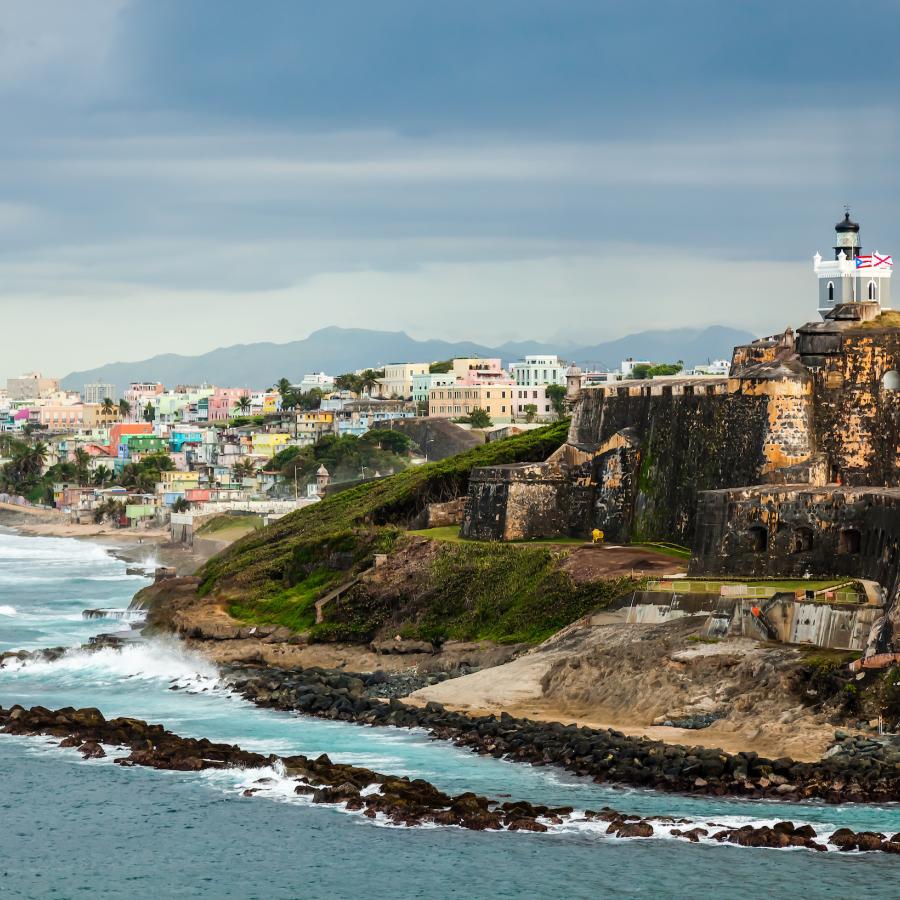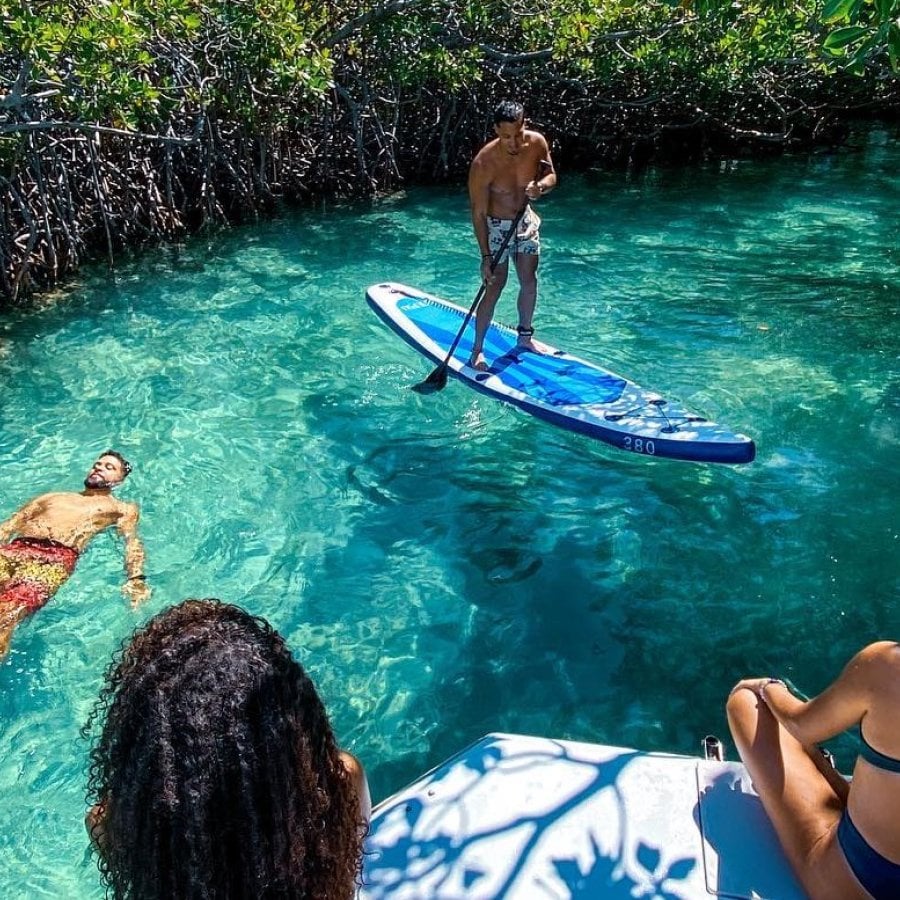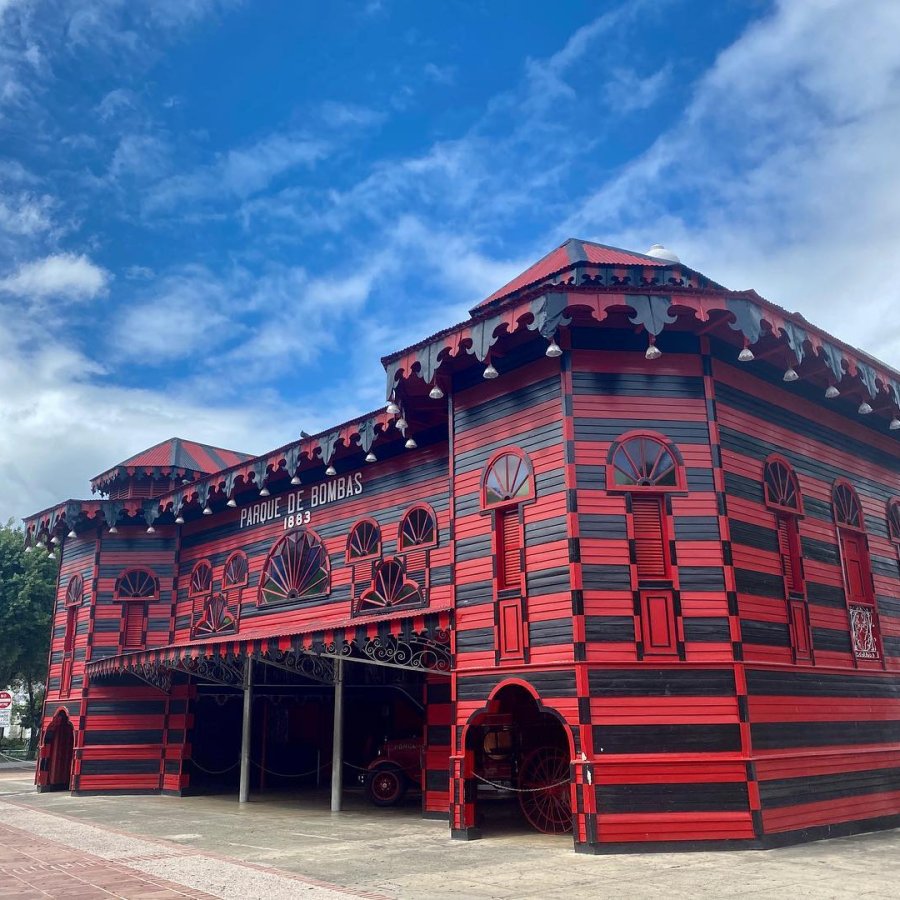Traveling to Puerto Rico is much easier than you think, but there are lots of questions you might have while planning a trip. Here are answers to some of the most frequently asked questions.
Puerto Rico was voted one of the top travel destinations for 2019 by a variety of major media outlets. The island is one of the easiest places to visit in the Caribbean, especially if you're a U.S. citizen.

One of Puerto Rico's many jaw dropping views.
Where is Puerto Rico?
Puerto Rico is located in the Caribbean Sea, between the Dominican Republic and the Virgin Islands. Puerto Rico is the smallest and most eastern of the Greater Antilles.
Is Puerto Rico part of the United States?
Yes. The Commonwealth of Puerto Rico is a territory of the United States. Puerto Ricans are American citizens, federal laws as well as local laws apply, and services such as U.S. Postal Service are here.
Do I need a passport to visit Puerto Rico?
United States citizens and permanent residents don't need a passport to travel to Puerto Rico or the US Virgin Islands. However, the Real ID Act will be in effect as of May 2025, so verify if your state is compliant with these laws because otherwise, you may need a passport to travel. Travelers from other countries visiting Puerto Rico have the same visa and passport requirements that would apply if visiting the mainland United States.

La Parguera beach at sunset.
What language is spoken in Puerto Rico?
The official languages of Puerto Rico are Spanish and English. Only about 20% of Puerto Ricans speak English fluently, although many people working in the service and tourism industries are bilingual, particularly in San Juan.
What time zone is Puerto Rico in?
Puerto Rico is in the Atlantic Standard Time Zone, which is an hour ahead of Eastern Standard Time. Since Puerto Rico does not observe Daylight Savings Time, from March through September the time on the island is the same as Eastern Standard Time.
What is the population of Puerto Rico?
As of 2017, the population of Puerto Rico is 3.34 million people.
What is the capital of Puerto Rico?
The capital of Puerto Rico is San Juan, located on the northeastern coast of the island. The population of San Juan is just over 355,000 people. San Juan has several main neighborhoods: Old San Juan, Puerta de Tierra, Condado, Ocean Park, Punta Las Marías, Miramar, Santurce, Hato Rey, and Río Piedras. Isla Verde, while adjacent to San Juan, is actually part of the town of Carolina.

Yuquiyú Treehouses, an eco glamping retreat in the foothills of El Yunque National Forest.
What is the drinking age in Puerto Rico?
The drinking age in Puerto Rico is 18, but to enter some bars and clubs you must be 21 or up.
Is Puerto Rico safe?
Puerto Rico is generally a safe destination for tourism. Use common sense: leave valuables in the hotel in a safe, be wary of isolated streets or wandering alone at night, lock your rental car and don't leave any belongings in plain sight, and be aware of your surroundings. Consider contacting a tour operator to simplify your travels to various parts of the Island. Limit the cash you carry and take only what you need. After all, most places accept credit cards. Finally, be respectful of residents.
When is hurricane season in Puerto Rico?
Hurricane season is officially in effect from June 1 to November 30.
When is the best time to travel?
It really depends on the type of experience you want to have. If you’re trying to escape winter farther north, you’ll find temperatures in the 70s and 80s (Fahrenheit) during January. You’ll also be able to experience some of the island’s unique holiday celebrations, like the San Sebastián Street Festival in Old San Juan, which is held during the third week of January. If you’re a surfer, the best waves are typically between December and January. Temperatures are warmer during the summer, but not by much. From May to October tends to be rainier than during the winter.

Rent a Jeep and have a true island adventure.
Should I rent a car?
If you want to explore sites and towns outside of the San Juan metro area, or if you'll be staying in more than one town during your visit (for example a few days in San Juan and then a few days in Rincón), then renting a car is a good idea. All major US car rental companies have a presence in the island, plus local taxi and Uber drivers are widely available (although Uber is more readily available in San Juan and the metro area than other parts of the island).
If you don't want to rent a car, most tour operators offer transportation to popular sites such as El Yunque or Fajardo's marina for catamaran excursions. If your visit is short or you mostly want to stay in San Juan, then you can rely on taxis and Uber to get around.
If you're visiting one of the island municipalities, Culebra or Vieques, then renting a Jeep or a car on the island will make getting around much more convenient. In Culebra you can also rent golf carts since it's a very small island. Taxis are available to the main beaches and towns.
Can I stay connected?
US travelers don’t need an international or special cellphone plan when traveling to Puerto Rico because the 4G LTE network works with the majority of mainland service providers. You’ll also find Wi-Fi available at many hotels around the island.
Is the water safe to drink?
The food and drink standards in Puerto Rico are comparable to those of mainland United States. The tap water is safe to drink as it is filtered and treated at the source.
What if I need additional information?
You can always reach the tourist information line at (787) 722-1709.
Paradise for Your Inbox
Get travel inspiration, news, tips and more delivered monthly.






